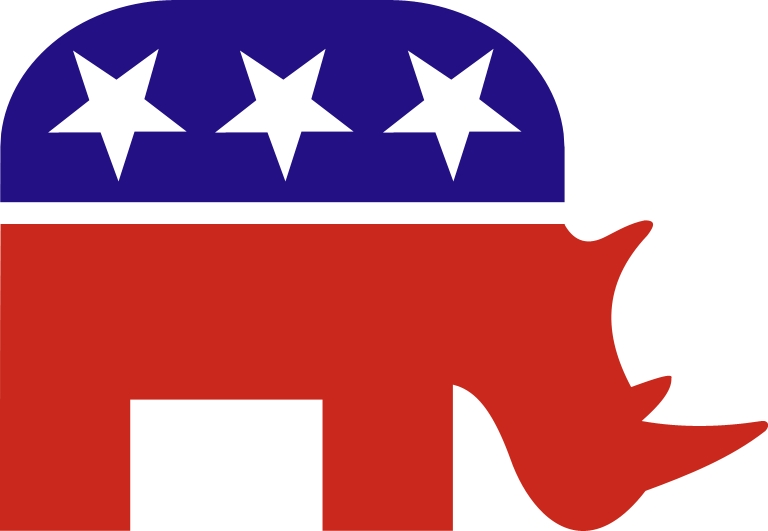The purpose of a political party
 We are at interesting point in Oklahoma's political history. Never before has the Republican Party ever been so dominant, but never before has it been in such danger of betraying the ideals that won it its dominant position. The task of the moment is not merely to win elections, but to protect the Republican brand, and to ensure that our platform, grounded in the timeless truths of human nature and economic behavior, is carried out. All of the hard work of Republican activists can be undone by Republican elected officials who are cowed by institutional resistance, led astray by their own sinful appetites, bedazzled by the blandishments of lobbyists (and the allure of post-politics job prospects), or simply flying a flag of political convenience.
We are at interesting point in Oklahoma's political history. Never before has the Republican Party ever been so dominant, but never before has it been in such danger of betraying the ideals that won it its dominant position. The task of the moment is not merely to win elections, but to protect the Republican brand, and to ensure that our platform, grounded in the timeless truths of human nature and economic behavior, is carried out. All of the hard work of Republican activists can be undone by Republican elected officials who are cowed by institutional resistance, led astray by their own sinful appetites, bedazzled by the blandishments of lobbyists (and the allure of post-politics job prospects), or simply flying a flag of political convenience.
When I began to follow politics in the early 1970s, Oklahoma was very nearly a one-party state, but that one party was the Democrats, which had owned Oklahoma politics since statehood. Birthed in the agrarian populism of William Jennings Bryan and Alfalfa Bill Murray, the attachment of Oklahoma to the Democratic Party was cemented by the New Deal in the crisis of the Great Depression. If you wanted a say in the choice of a legislator or county commissioner, you had to be registered Democrat in most of Oklahoma.
As of Oklahoma's 75th birthday in 1982, only two Republicans had served as Oklahoma governor, for one term each, and Republicans had only managed control of the State House for two years following the Harding landslide of 1921. A handful of Republicans, mainly from the two major cities or the northwestern wheat belt, had served in the U. S. House. The national Democratic Party's weakness against Communist aggression and flirtation with the social theories of the left began to alienate Oklahoma voters, who began choosing Republicans for president and U. S. Senate. But at every level below that, the Democrats still enjoyed an electoral lock. It was another three decades before Republicans replaced Democrats as the dominant party.
We know from history and experience that the principles of limited government, individual liberty and responsibility, sanctity of human life, and the natural family bring peace and prosperity to a society. But rent-seekers want subsidies, bureaucrats want sinecures, sociopaths want power, perverts want affirmation, and everyone wants irresponsibility without consequence (except the victims of that irresponsibility). It takes tenacity to move forward for the values that build and maintain civilization in the face of such a headwind.
To move forward successfully, we need a political organization that not only wins elections by espousing these timeless values, but also carries those values forward in legislation, judgment, and executive action. That is why political parties exist -- to implement a set of principles and policies that its members believe most conducive to the public good. Under such a view, party leaders and activists must not only elect candidates to public office, they must also hold those elected officials accountable.
An elected official who pursues policies contrary to his party's fundamental ideals is damaging his party's brand. If the Republican Party's principles are most conducive to the peace and prosperity of our nation, as we believe, if the contrary policies are pursued by officials carrying the GOP label, our party will be blamed for the inevitable ruin, and we will lose office and the opportunity to carry the right principles into practice. Therefore, when an elected official acts against the purposes of the party, it is appropriate for party leaders to denounce that official and work against his continued service in office.
Unfortunately, there's another perspective on the purpose of a party. I call this the "empty vessel" theory. In this view, the Republican Party is just a vehicle for whoever manages to win a Republican primary. By this definition, any policy promoted by a Republican elected official is a good policy. By this view, a party official's job is to promote and protect anyone in office with an (R) after his name, no matter how damaging his policies. By definition, a Republican elected official beyond criticism. In this view, a platform is not only futile but dangerous, as taking a firm stand on any issue has the potential to alienate a prospective voter.
Without a platform that it seeks to accomplish, a party is little more than a social club, a gang competing with other gangs to see which one gets to loot the public treasury.
Yes, party leaders need to understand the nuts and bolts of campaigns, the art and craft of conveying a persuasive message to the voters. But before any of that matters, you had better have a message worth conveying. As I vote in this year's party elections, I'll be voting for party officials who put principle above personality.
0 TrackBacks
Listed below are links to blogs that reference this entry: The purpose of a political party.
TrackBack URL for this entry: https://www.batesline.com/cgi-bin/mt/mt-tb.cgi/7971